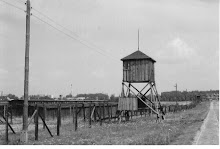Winston Churchill was born on this day in 1874. The twentieth century boasted more than a handful of truly outstanding statesmen and national leaders. Making the short list for the greatest statesmen of the last century are: (1) Theodore Roosevelt, who led America to become a true world power; (2) Franklin Roosevelt, who led a country out of isolationism to defeat Hitler's Germany; (3) Ronald Reagan, who never doubted that American virtue would triumph over the Evil Empire and thus led the way for what was the disintegration of the Soviet Union.
The greatest statesman, however, was Winston Churchill. His stalwart leadership as Prime Minister during the early years of World War II kept Hitler at bay while Churchill was recruiting America to join the war against the Nazis. England was completely overpowered during the fall of 1940 when Germany was torridly air bombing London for weeks on end. Churchill kept his country, and the free world, in the game by imploring his military to fight with tenacity and by maintaining an erect, no-surrender attitude through his speeches and actions. The "Blood, Toil, Tears, and Sweat" speech, the "The Finest Hour" speech, the "The Few" speech, and the "We Shall Fight on the Beaches" speech will echo throughout time as clarion calls reminding us that evil cannot defeat an indomitable spirit. Through his words, Churchill turned the English language into a weapon of mass destruction.
The Churchill biography is gigantic even when measured only by his public service and military accomplishments. However, the prodigious Churchill created a vast body of work as an author. He wrote a total of 43 books in 72 volumes. To name a few of the best known books: The World Crisis (about WWI - 5 volumes); A History of the English Speaking People (4 volumes); The Second World War (6 volumes). His mode of relaxation was painting and Churchill even became an accomplished painter.
Winston Churchill was a truly remarkable man who possessed a fiery passion for charging forward into adversity for the sake of a Good. What made him exceedingly impressive was his ability to accomplish what he did despite some serious human obstacles. Churchill had a speech impediment that would have caused most people to withdraw from ever engaging in public speaking. Also, throughout his life, Churchill suffered bouts of major depression, calling his depressive states the "Black Dog". Undeterred, he rose above these drawbacks with a will and a drive and a talent that the human race rarely sees.
When Churchill resigned as Prime Minister in 1955, he bade farewell to his Ministers leaving them with a message and a piece of advice. The message was: "Man is spirit". The advice was: "Never be separated from the Americans". The inimitable Winston Churchill was a savage gift to a world that was in peril.
Quick Notes:
Churchill's favorite cigar? Romeo y Julieta. He began cigar smoking while in Cuba in 1895.
Churchill's favorite drink? Whisky and Soda
Best Winston Churchill biography? Churchill, a Life by Martin Gilbert.
Churchill's Public Service Timeline:
1893: Enrolls in Royal Military Academy
1895: Visits Cuba while on leave during the Cuban War of Independence and comes under fire for the first time
1896: Cavalry officer Churchill is posted to India
1897: Volunteered to fight local tribesmen in Malakand (now part of Pakistan)
1898: Participates in a cavalry charge in Sudan
1899: Loses first attempt to be elected to parliament. Travels as journalist to the Boer War in South Africa. Is captured and escapes.
1900: Elected to parliament as a conservative
1904: Leaves the Conservatives to join the Liberals
1911: Is appointed First Lord of the Admiralty
1915: Blamed for Dardanelles disaster in WWI. Resigns. Rejoins the army and fights in France
1919: Secretary of State for War and Air
1924: Leaves Liberals and rejoins Conservatives. Is made Chancellor of the Exchequer
1930s: "The Wilderness Years". Churchill out of office but is a lone voice warning of the menace from Germany
1939: Britain declares war on Germany. Churchill is back as First Lord of the Admiralty
1940: Is made Prime Minister
1945: Loses PM re-election
1946: In a speech in Kansas, coins the term "Iron Curtain"
1951: Becomes Prime Minister again
1955: Resigns as PM
1964: Leaves the House of Commons
1965: Dies in London at age 90
“Never give in, never give in, never, never, never, never – in nothing, great or small, large or petty – never give in except to convictions of honor and good sense.” – Sir Winston Churchill

